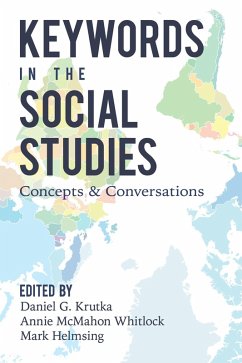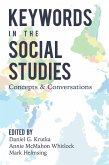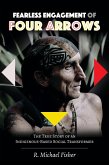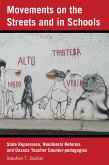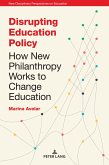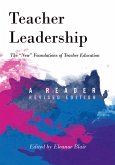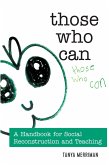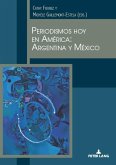Keywords in the Social Studies takes words commonly used in social studies education and unsettles them in ways that will redefine the field for years to come. Throughout the book, leading and emerging scholars in social studies education experiment with keywords central to the field seen as either taken for granted (such as family and technology) or perennially contested (such as terrorism and freedom), offering readers new positions, approaches, and orientations to what is possible to teach in the social studies. Focusing on democratic ways of living and being in the world as citizens, this innovative collection offers chapters organized around twenty-six keywords and ten invited responses to survey the unsettled terrain we call "the social studies." Each chapter attends to a specific keyword selected for both its contemporary applicability to different aspects of K-12 social studies education and to its dominant presence in the curriculum thought that structures social studies education in classrooms, museums, and beyond. Drawing inspiration from Raymond Williams' work on keywords in culture, over fifty authors discuss complex and contested components of each keyword by way of offering diverse accounts that range from autobiographical narratives to historical genealogies, from critical implications of specific curriculum texts to offering vignettes of classroom teaching that deploy a keyword concept in practice. Keywords in the Social Studies is timely and essential reading for graduate students and faculty in social studies education and curriculum studies; students and teacher candidates in undergraduate and graduate education courses; and practitioners teaching in schools, museums, and other spaces of learning.
Dieser Download kann aus rechtlichen Gründen nur mit Rechnungsadresse in A, D ausgeliefert werden.
"This collection of essays presents a rousing intellectual exercise to all who care about 'why teach this rather than that' in social studies. The approach is refreshingly comprehensive in an era when social studies is often reduced to just a few academic disciplines."-Stephen J. Thornton, Professor of Social Studies Education, University of South Florida; Author of Teaching Social Studies That Matters: Curriculum for Active Learning
"By calling attention to the fluidity of concepts that have long defined the social studies, the authors in Keywords in the Social Studies remind us that concept labels have consequences that should unsettle us all. Each chapter builds the case for analyzing these consequences in community-honoring local as well as disciplinary knowledge, inviting teachers and students to interrogate received wisdom, to anticipate new and unsettling ways to understand the world, and to engage with content significant enough to deserve such attention."-Linda S. Levstik, Professor Emeritus of Social Studies/Humanities Education, University of Kentucky; Co-author of Teaching History for the Common Good and Doing History: Investigating with Children in Elementary and Middle Schools

